Riot police move in on North Dakota pipeline protesters
- Published
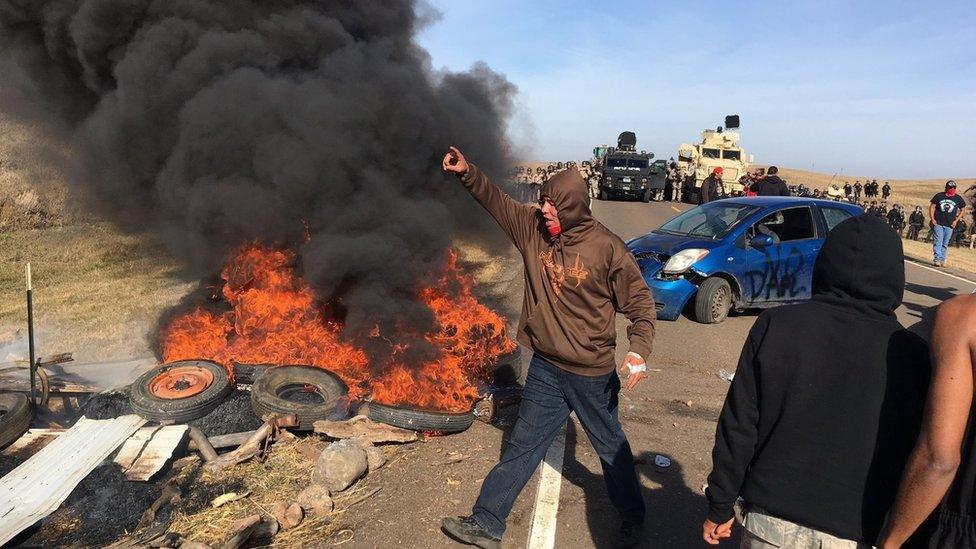
Protest groups accuse the police of brutality
Armed police in the US state of North Dakota have arrested 141 Native American protesters and environmental activists during a tense confrontation.
They were among several hundred people who occupied private land in the path of a controversial new oil pipeline.
Police fired non-lethal rounds and used pepper spray and sound cannon to push protesters back to their main encampment on public land.
Skirmishes lasted overnight and continued until early Friday morning.
By then, spent bean bag rounds and pepper spray canisters littered the ground as police towed away vehicles that the protesters had burned to create barricades in the road, including several military-grade Humvees.
Police clear Native American protest camp
"They used a sonic device and then also they used rubber bullets and we have shots of people who had rubber bullets right to the face. They maced elders right in the face. They dragged people out of sweat lodges. They shot one 15-year-old boy's horse and killed it under him," Jacqueline Keeler from the Sioux tribe told the BBC.
She said members of the tribe were protesting because the pipeline threatened the region's water supply went across land never ceded by the tribe.
Police said they had fired non-lethal bean bag rounds in response to stone throwing and one woman who fired a pistol three times at police officers without hitting any.
Dozens of officers in riot gear, some armed, moved in assisted by trucks and military Humvees.
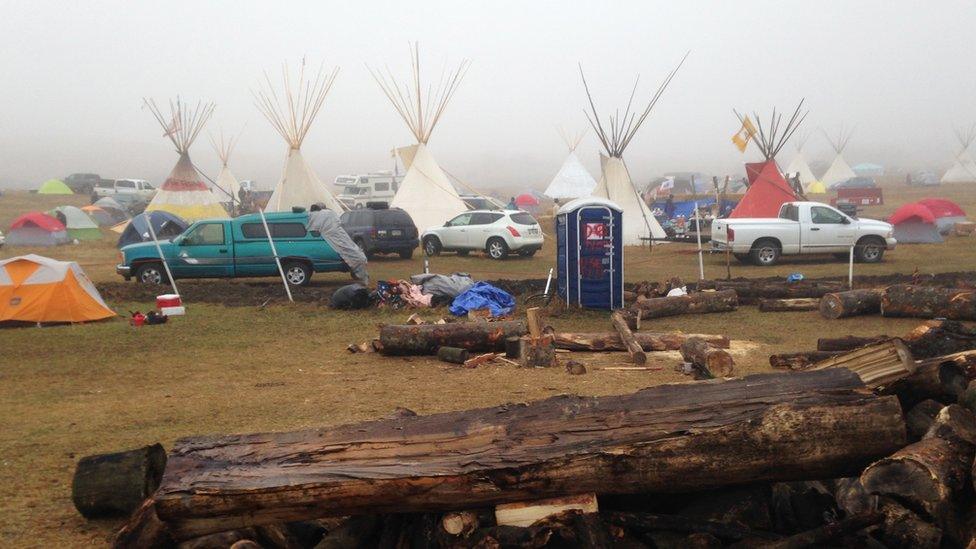
The scene was calm on Wednesday
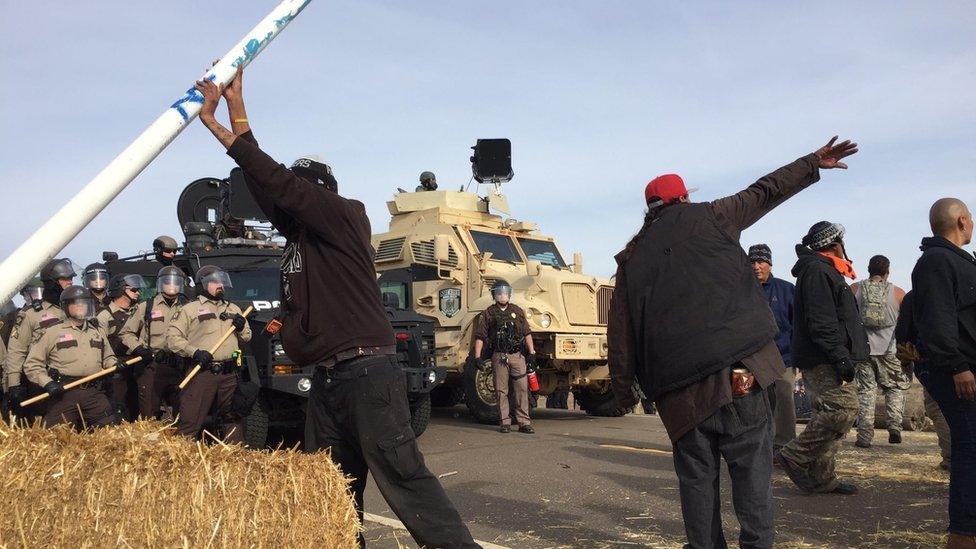
Authorities said protesters were now using "aggressive" tactics
Morton County Sheriff's office said the operation began at 11:15am local time (18:15 GMT) and that protesters had refused to leave voluntarily on Wednesday.
Sheriff Kyle Kirchmeier said the protesters were a "public safety issue" and their actions had "forced law enforcement to respond".
"We cannot have protesters blocking county roads, blocking state highways or trespassing on private property," he said in a statement.
But Robert Eder, a 64-year-old Vietnam War veteran from the Standing Rock Reservation, said protesters were not scared.
"If they take everybody to jail, there will be twice as many tomorrow, and every day that passes more will come," he said. "If they raze these teepees, tomorrow we will be back."
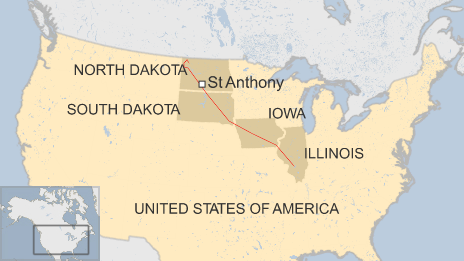
Hundreds of protesters have camped on the federally owned land for months, with more than 260 people arrested before Thursday's police operation.
Energy Transfer Partners, the company behind the project, has said it will boost the local economy and is safer than transporting oil by rail or road.
Members of the Sioux tribe say the Dakota Access pipeline will desecrate sacred land and harm water resources.
The pipeline will run almost 1,900km (1,170 miles), carrying oil to Gulf Coast refineries.
Native American protesters claim the land as their own, citing a 19th Century treaty with the federal government.
The protest has drawn the attention of activists and celebrities, including actress-activist Shailene Woodley and Green Party presidential candidate Jill Stein.

Native American tribes come together to protest planned pipeline
- Published1 September 2016
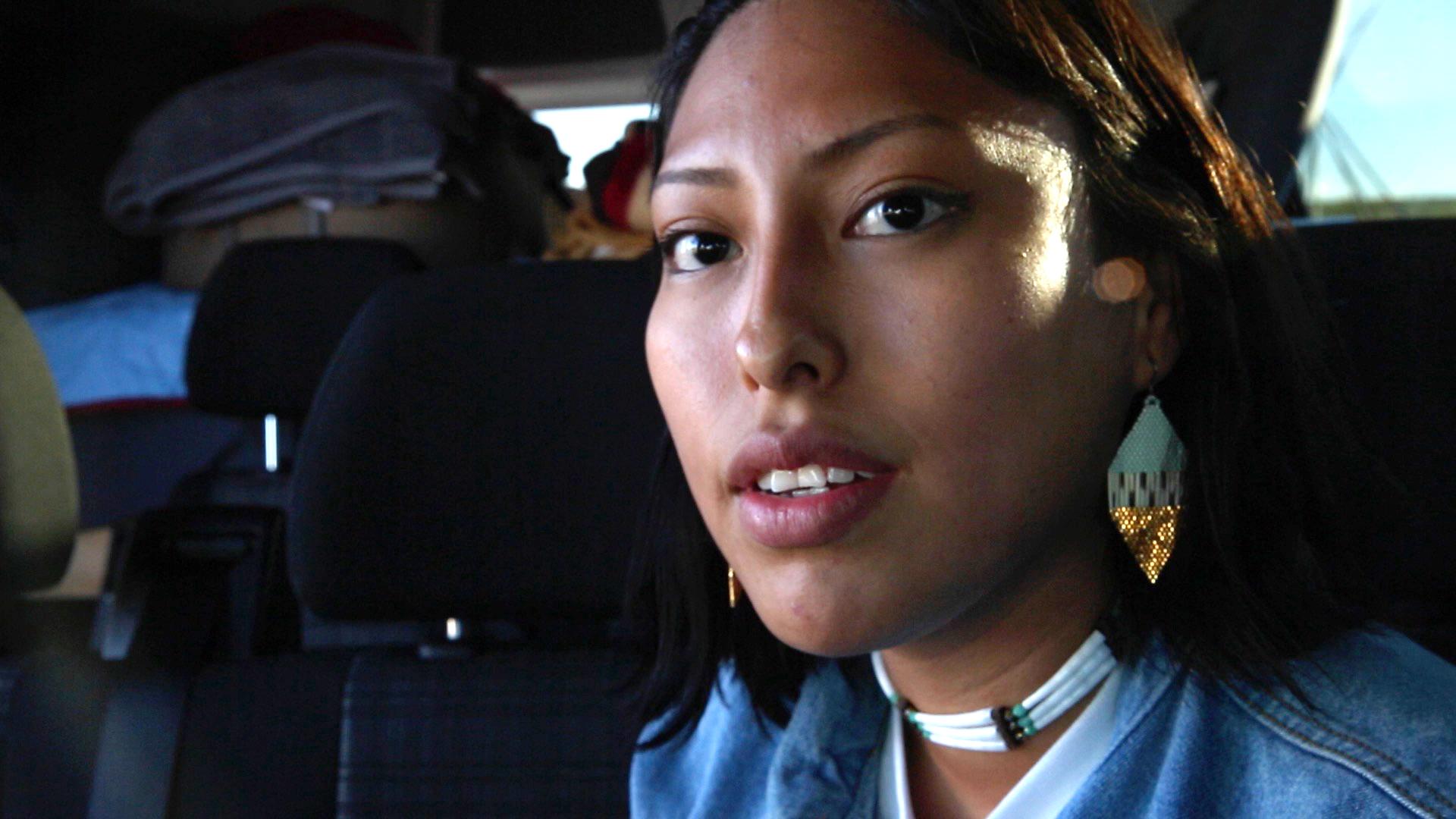
- Published2 September 2016